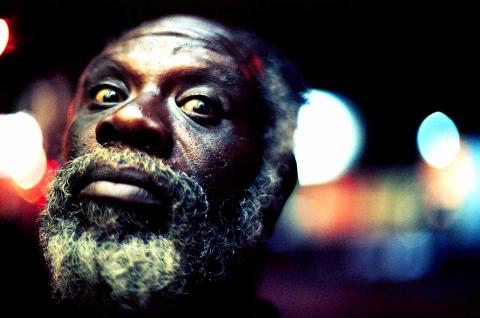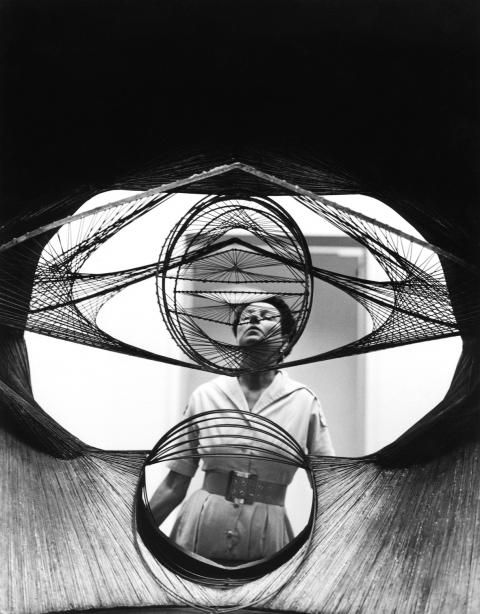When the Urban Nomad Film Fest (城市游牧影展) started out as a party among friends in 2002, few would expect it to last. Fifteen years after, the annual festival has grown to become an important cultural event, where people come to share, engage and have fun through a series of film screenings, discussions and parties.
As in the past, this year’s festival features some of the most hilarious and thought-provoking indie films, covering topics ranging from art and youth subcultures to activism and social justice.
HUMAN RIGHTS ACTIVISM

Photo courtesy of Urban Nomad Film Festival
US-based Chinese director Wang Nanfu’s (王男?) Hooligan Sparrow exposes government surveillance and corruption in China.
Following the screening on May 21, Wang will discuss the difficulties human rights activists in China face — government interrogation, harassment, imprisonment — as well as her own run-ins with authorities.
Act and activism go hand in hand in Art War, which follows four young Egyptian graffiti artists and musicians as they take part in the peaceful revolution during and after the 2011 Arab Spring.

Photo courtesy of Urban Nomad Film Festival
The documentary makes an engaging exploration of arts as a powerful means of resistance and conveying personal politics.
The film’s director Marco Wilms will attend the festival and discuss his work in post-screening Q&A sessions.
MUSIC FOR THE MASSES

Photos courtesy of Urban Nomad Film Festival
Activism aside, music enthusiasts also have plenty to choose from the festival’s lineup of over 60 feature, documentary, short and music video works from France, Germany, Canada, Cambodia, Taiwan, Hong Kong and the US.
Rubble Kings, for example, brings the audience back to the streets of New York under gang control in the late 1960s and early 1970s and tells the long forgotten story of how gang members decided to stop bloodshed by throwing block parties, which gave birth to hip-hop culture.
Fans of Motorhead, Rammstein, Anvil and the likes may want to check out Wacken: the Movie, which delivers an exciting portrait of Wacken Open Air, the biggest heavy-metal festival in the world.
Meanwhile, Mad Tiger zooms in on New York-based Peelander-Z, which describes itself as a “Japanese action comic punk band hailing from the Z area of Planet Peelander.”
On Sunday, several filmmakers and musicians from Germany, Taiwan and the UK will discuss the issue of documenting music.

In the March 9 edition of the Taipei Times a piece by Ninon Godefroy ran with the headine “The quiet, gentle rhythm of Taiwan.” It started with the line “Taiwan is a small, humble place. There is no Eiffel Tower, no pyramids — no singular attraction that draws the world’s attention.” I laughed out loud at that. This was out of no disrespect for the author or the piece, which made some interesting analogies and good points about how both Din Tai Fung’s and Taiwan Semiconductor Manufacturing Co’s (TSMC, 台積電) meticulous attention to detail and quality are not quite up to

April 21 to April 27 Hsieh Er’s (謝娥) political fortunes were rising fast after she got out of jail and joined the Chinese Nationalist Party (KMT) in December 1945. Not only did she hold key positions in various committees, she was elected the only woman on the Taipei City Council and headed to Nanjing in 1946 as the sole Taiwanese female representative to the National Constituent Assembly. With the support of first lady Soong May-ling (宋美齡), she started the Taipei Women’s Association and Taiwan Provincial Women’s Association, where she

Chinese Nationalist Party (KMT) Chairman Eric Chu (朱立倫) hatched a bold plan to charge forward and seize the initiative when he held a protest in front of the Taipei City Prosecutors’ Office. Though risky, because illegal, its success would help tackle at least six problems facing both himself and the KMT. What he did not see coming was Taipei Mayor Chiang Wan-an (將萬安) tripping him up out of the gate. In spite of Chu being the most consequential and successful KMT chairman since the early 2010s — arguably saving the party from financial ruin and restoring its electoral viability —

It is one of the more remarkable facts of Taiwan history that it was never occupied or claimed by any of the numerous kingdoms of southern China — Han or otherwise — that lay just across the water from it. None of their brilliant ministers ever discovered that Taiwan was a “core interest” of the state whose annexation was “inevitable.” As Paul Kua notes in an excellent monograph laying out how the Portuguese gave Taiwan the name “Formosa,” the first Europeans to express an interest in occupying Taiwan were the Spanish. Tonio Andrade in his seminal work, How Taiwan Became Chinese,